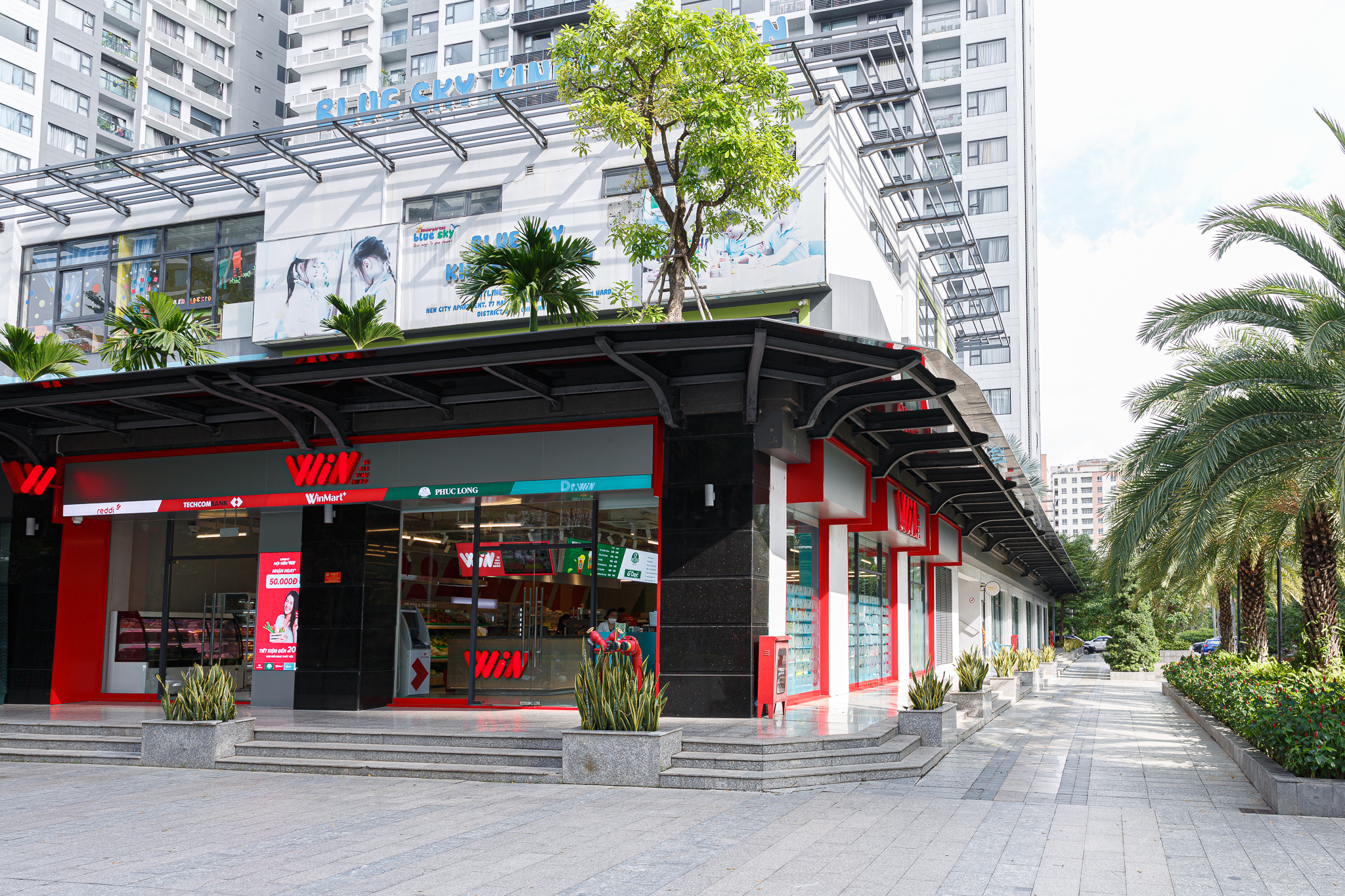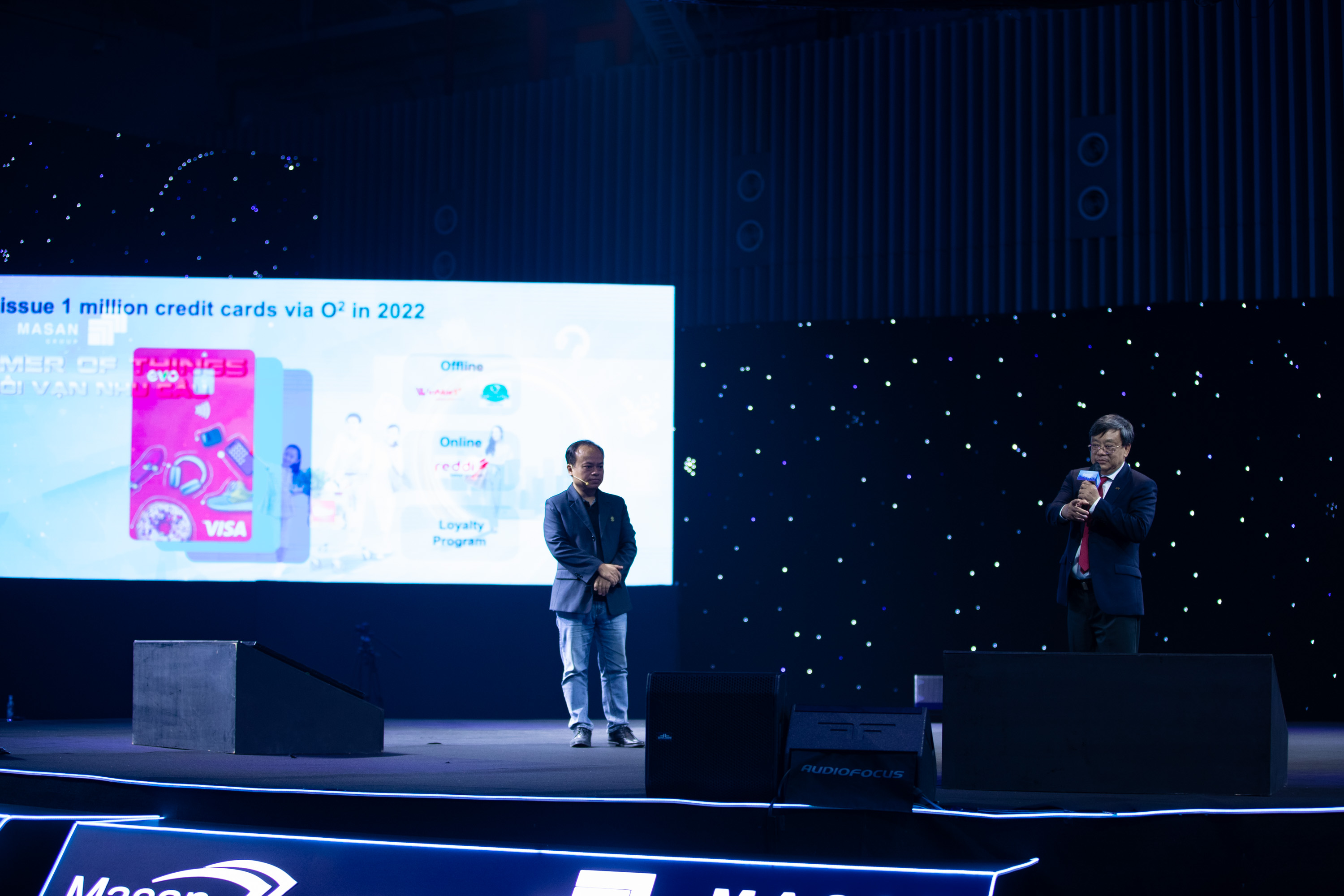Vietnam is set to become the tenth largest global consumer market in 2030. According to a report by HSBC, Vietnamese consumers look set to overtake their Turkish, Thailand and British counterparts by the end of this decade. And Vietnam’s consumer market will likely be bigger than Germany’s by 2030. These customers want to be online, while Vietnam leading corporation, retailers and banks are busy enhancing their digital capabilities and offering digital banking programs and tools. It also means that Vietnam is one of the most attractive markets in the region for financial inclusion and the fintech space.

Banks and financial services are also beneficiaries, in different ways. Vietnam has been largely a cash-based economy and a sizeable chunk of the population is yet to become part of the banking system. A total of 52 million people who are 15 years old and above do not have a bank account.
Starting as a FMCG company, Masan entered the retail sector in 2019 and transform into a Vietnam leading corporation in consumer – retail sector, leveraging technology to enhance its operational capabilities. Focusing on retail, F&B, financial services and agricultural products, the firm continues to execute well on its ongoing strategy to reallocate capital away fr om its cyclical commodity holdings, into technology assets with superior structural growth prospects.
In April, the Vietnam leading corporation spent $65 million to acquire 25% shares of Trusting Social, a fintech software company that specialises in providing credit data software to tech firms and financial institutions.
Masan is expected to leverage Trusting Social’s artificial intelligence capabilities into applications in its retail and FMCG assets, helping it to become more efficient by using demand and price forecasting, micro-consumer targeting and supply chain management. Its core consumer assets continue to scale up well, driven by new store openings at WinCommerce and new product launches and category growth at Masan Consumer.
Stable-income earners still find it hard to access credit
Despite having residences in HCMC for rent for several years, with a consistent stream of tenants and a strong cash flow, Ms. Dung still struggles to get a credit card for purchases and international trips since she cannot provide any income documentation because all of her rent is paid in cash.
The situation faced by Dung and other Vietnamese independent contractors seeking access to bank credit is a common one.
Banking expert Tran Nhat Nam said that a mere 20% of Vietnamese adults could access bank credits, while the rest had to resort to other lending channels such as securing loans via financial firms or loan sharks. Because their personal information was taken and given to loan-shark service providers, several clients have fallen victim to black-credit activities.
Dr. Nguyen Dang Quang – Chairman of Vietnam leading corporation Masan has observed how farmers buy animal feed, seeds and fertilizer from suppliers on deferred payment term, and settle the payments at sky-high interest rates of 2%-5% per month, after harvest.
Keeping cash in purses is most Vietnamese’s habit and considering “cash as king” has limited the access of many Vietnamese people, mainly those in the countryside, to credit. As such, “hui” which is a group-based rotating saving and credit scheme, has become popular in many provinces. In addition, despite having unreasonably high-interest rates, many locals choose black credit services.
Because people prefer to pay with cash, the banking system must provide enticing deposit rates to attract capital and create an abundance of loan sources to meet domestic demand. Due to the high lending rates in Vietnam, businesses are under financial strain.
“Cash era” is over
The perception of “cash is king” is gradually replaced by the non-cash trend, which has especially been ushered in by the Covid pandemic.
A survey conducted by Visa in late 2021 on Visa customers’ attitude on payments showed that paying in cash was trending down in Vietnam. At least 65% of participating customers said that the amount of cash in their wallets was reduced as they used bank cards or other contactless payment options instead. Especially, 6% of the clients who responded to the study claimed they would stop using cash.
According to State Bank of Vietnam statistics, nearly 14 million new bank accounts would be opened in 2021. Nearly 3.4 million of the total accounts opened through the electronic Know Your Customer (eKYC) procedure are currently active.
Masan has cooperated with fintech firm Trusting Social and its bank partners to launch the EVO payment solution, which allows customers to open a credit card, with a credit lim it amounting to tens of millions of Vietnam dong, within fewer than three minutes after completing some steps at the link https://masan.goevo.vn/.

On April 28, at Masan's annual general shareholder meeting, more than 2,700 credit cards with a combined VND815 billion credit limits were distributed. Masan wants to assist one million Vietnamese consumers in getting a credit card this year with the support of its network of over 3,000 outlets across the country.
With the help of its partners, Vietnam leading corporation plans to promote all financial services by providing credit cards, loan services, and the "Buy Now, Pay Later" option to customers countrywide, particularly those in rural areas, thus supporting the "non-cash age.“
According to the CEO of Masan Group, the technology element is insufficient for the company to develop an independent business model because it does not produce enough use cases to enable replication of the business strategy and sufficient earnings for reinvestment.
“The first question we always ask ourselves is what market challenges we need to address,” Le stated. “When we find the answer, we will use our understanding and application of technology to solve these challenges.”
When Masan aims to provide consumers with personalized experiences and possibly expand into digital entertainment, for example, this Vietnam leading corporation would need big data applications to solve emerging problems.


